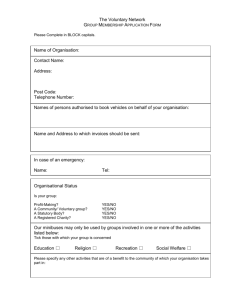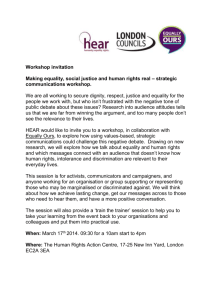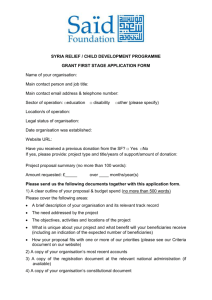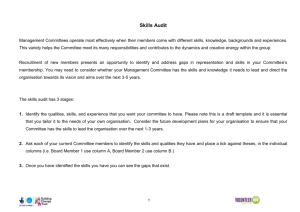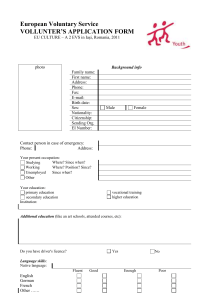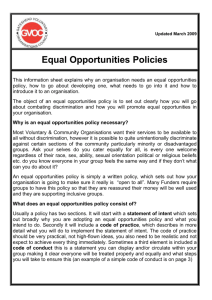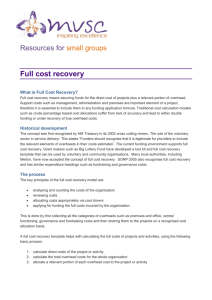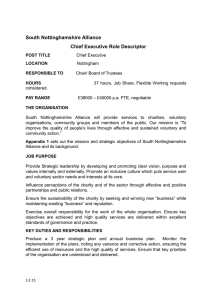Funding and support
advertisement
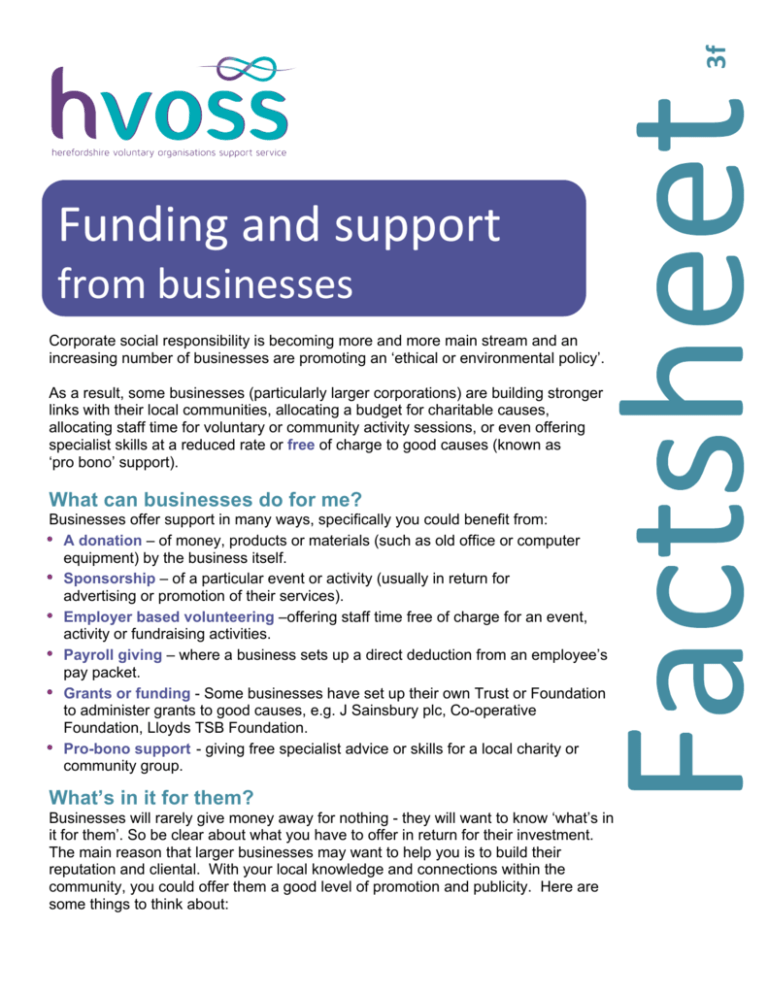
Funding and support from businesses Corporate social responsibility is becoming more and more main stream and an increasing number of businesses are promoting an ‘ethical or environmental policy’. As a result, some businesses (particularly larger corporations) are building stronger links with their local communities, allocating a budget for charitable causes, allocating staff time for voluntary or community activity sessions, or even offering specialist skills at a reduced rate or free of charge to good causes (known as ‘pro bono’ support). What can businesses do for me? Businesses offer support in many ways, specifically you could benefit from: • A donation – of money, products or materials (such as old office or computer equipment) by the business itself. • Sponsorship – of a particular event or activity (usually in return for advertising or promotion of their services). • Employer based volunteering –offering staff time free of charge for an event, activity or fundraising activities. • Payroll giving – where a business sets up a direct deduction from an employee’s pay packet. • Grants or funding - Some businesses have set up their own Trust or Foundation to administer grants to good causes, e.g. J Sainsbury plc, Co-operative Foundation, Lloyds TSB Foundation. • Pro-bono support - giving free specialist advice or skills for a local charity or community group. What’s in it for them? Businesses will rarely give money away for nothing - they will want to know ‘what’s in it for them’. So be clear about what you have to offer in return for their investment. The main reason that larger businesses may want to help you is to build their reputation and cliental. With your local knowledge and connections within the community, you could offer them a good level of promotion and publicity. Here are some things to think about: 3f This factsheet is for guidance only -­‐ see terms of use, copyright and disclaimer on www.gmvss.net/terms Access and reach – how many people on your mailing lists would be interested in their services, how many local community groups and organisations are you engaged with, how does your work tie in with their business? Newsletters – If you put an article or advert in your newsletter, how many people would read it? Which areas does it cover? What type of audience are you looking at? Your group or organisation - Could your members, staff or volunteers (or their families) benefit from the services that the business offers? Great! How should we approach them? Key Words Corporate Social Responsibility (CSR) how companies manage the business processes to produce an overall positive impact on society Pro bono – businesses or professionals with specialist skills offering their time free of charge to good causes Always do your research – Identify which businesses might support your community activities, go onto their website to see if they have a policy on supporting local charities, see if there are businesses that are already involved in your local area. Find out what works from existing support that is being offered. Target your approach - don't send circular letters to a random list of businesses, use your research, make it personal and target appropriate businesses that may be interested in your cause. What information can you find out about the business? Is there a process or timetable for sending in applications or a preferred method of getting in touch? Would they be interested in visiting your group? Make use of any existing contacts through your organisation (does anyone in your organisation already have connections with a particular business that you can utilise? Approach businesses who have products or services related to your organisation (such as a toy business if you are a mother and toddler group). Source: www.mallenbaker.net/csr/definition.php Getting in touch - Find out who is responsible for dealing with charitable appeals (their name, a job title and any information you could use that might help to build your case). Initial contact is often best done over the telephone, especially with local businesses. Tell them who you are and what you do and ask if you can write to them. Be brief, straight to the point and professional. You might want to emphasise any benefits they will get from supporting your organisation – what’s in it for them? Be clear and specific about why you need the money This factsheet is for guidance only -­‐ see terms of use, copyright and disclaimer on www.gmvss.net/terms and what it would be spent on. Think about what you want from them, if you are asking for a donation; tell them how much you need to raise and the number of donations you need to reach that total. Writing letters - If you write a letter, address it to the right contact and address, keep it short and simple (to one side of A4 if possible). You can always attach some additional supporting information (e.g. a copy of your annual report, press cuttings if you need to) but do not overload them. Make sure that you stress your link with the business and the benefits to them if they support you. Nurture your relationship If you are successful – show your appreciation and do not forget to keep in touch with any achievements related to their donation or information about how the project develops. They may well be interested in supporting you again in the future. If you are unsuccessful – Ask for feedback if you can and don’t give up. Depending on why they turned you down, you may be able to use it to improve that could help you follow up with them in the future (or with another organisation). Further links: • Business in the Community – Encourages businesses to engage and improve their impact on local communities. They have a network of professional firms offering free support to the voluntary sector (called Pro Help) and promote employee–based volunteering www.bitc.org.uk. For full details on giving methods and what they are likely to fund www.businessgiving.org.uk • Professionals4free –developed by Timebank, Business in the Community, NCVO (National Council for Voluntary Organisations) and Business Community Connections to enable the voluntary and community sector to access free services from business professionals www.professionals4free.org.uk • In Kind Direct matches surplus with need - www.inkinddirect.org.uk • The Guide to UK Business Giving by John Smyth profiles over 500 businesses which support community and voluntary organisations. ISBN 978 1 906294 32 8 • Finding Company Sponsors for Good Causes by Chris Wells, 2000, ISBN 1 900360 37.3 – A practical handbook on drawing up a proposal, costing it, identifying potential sponsors and ‘making the ‘ask’. Copyright ©2013 GMVSS www.gmvss.net www.hvoss.org.uk


